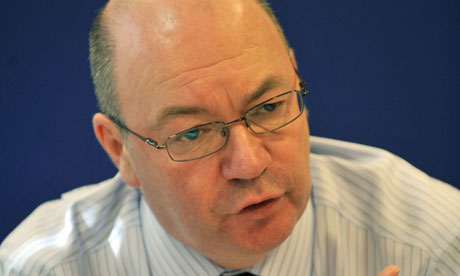Tuesday 3 May 2011 15.33 BST
- Article history

The British government hopes Osama bin Laden's death will encourage the US to press harder for political talks on the future of Afghanistan with the Taliban and Pakistan.
Britain's defence chiefs in particular are impatient with American reluctance to push ahead with the political agenda before the outcome of more military operations are known.
British commanders suggest that whatever military operations are undertaken by US-led foreign forces in Afghanistan, this coming "fighting season" will be especially bloody, with insurgents attacking soft, mainly Afghan, targets and using suicide bombers.
Whitehall's growing realisation that Pakistan will play a key role in talks about Afghanistan's future, as well as countering terrorism, is reflected in comments by an array of ministers in the wake of Bin Laden's death.
Whatever their private views, the message was clear: the west needs Pakistan more than Pakistan needs the west.
Last year David Cameron provoked a diplomatic row with Pakistan by accusing it of looking "both ways" on terrorism.
Earlier this year, he headed a high-level delegation, including General Sir David Richards, chief of the defence staff, and Sir John Sawers, chief of the secret intelligence service, MI6.
On Monday Cameron spoke on the phone to Pakistan's president, Asif Ali Zardari, and prime minister, Yousuf Raza Gilani. "As far as they were concerned, Bin Laden was a foreigner who had no business being in Pakistan, who brought nothing but misery to their country. That is their strong view," he said.
When pressed, he told the BBC Radio 4 Today programme: "If we turn away from them and give up on them and say 'This is all too difficult and complicated because we don't always get what we want', you are left with a nuclear power in danger of massive extremism and massive instability."
Cameron said the death of Bin Laden was "clearly a helpful development" in terms of the military campaign in Afghanistan but need not hasten the UK's exit.
"I don't think it will necessarily change any timetables but we should use it as an opportunity to say to the Taliban: 'Now is the time to separate yourself from al-Qaida, to give up your weapons, to accept the basic tenets of the Afghan constitution,' "said Cameron.
The Foreign Office minister, Alistair Burt, was asked on BBC Breakfast on Tuesday if he agreed with suggestions from US officials that Pakistan must have known something about Bin Laden's whereabouts. He replied: "We do not know about that. What we do know is that Pakistan is a vital partner in counter-terrorism issues for the UK and for the rest of the world community. They have lost a lot of their own security forces to terrorism, they are fighting it very hard in their own country, and of course they are playing a key role in Afghanistan."
He added: "We don't know all the circumstances behind the location of Bin Laden and the events yesterday but we do know that Pakistan will remain a very important security partner for us and for the international community."

No comments:
Post a Comment